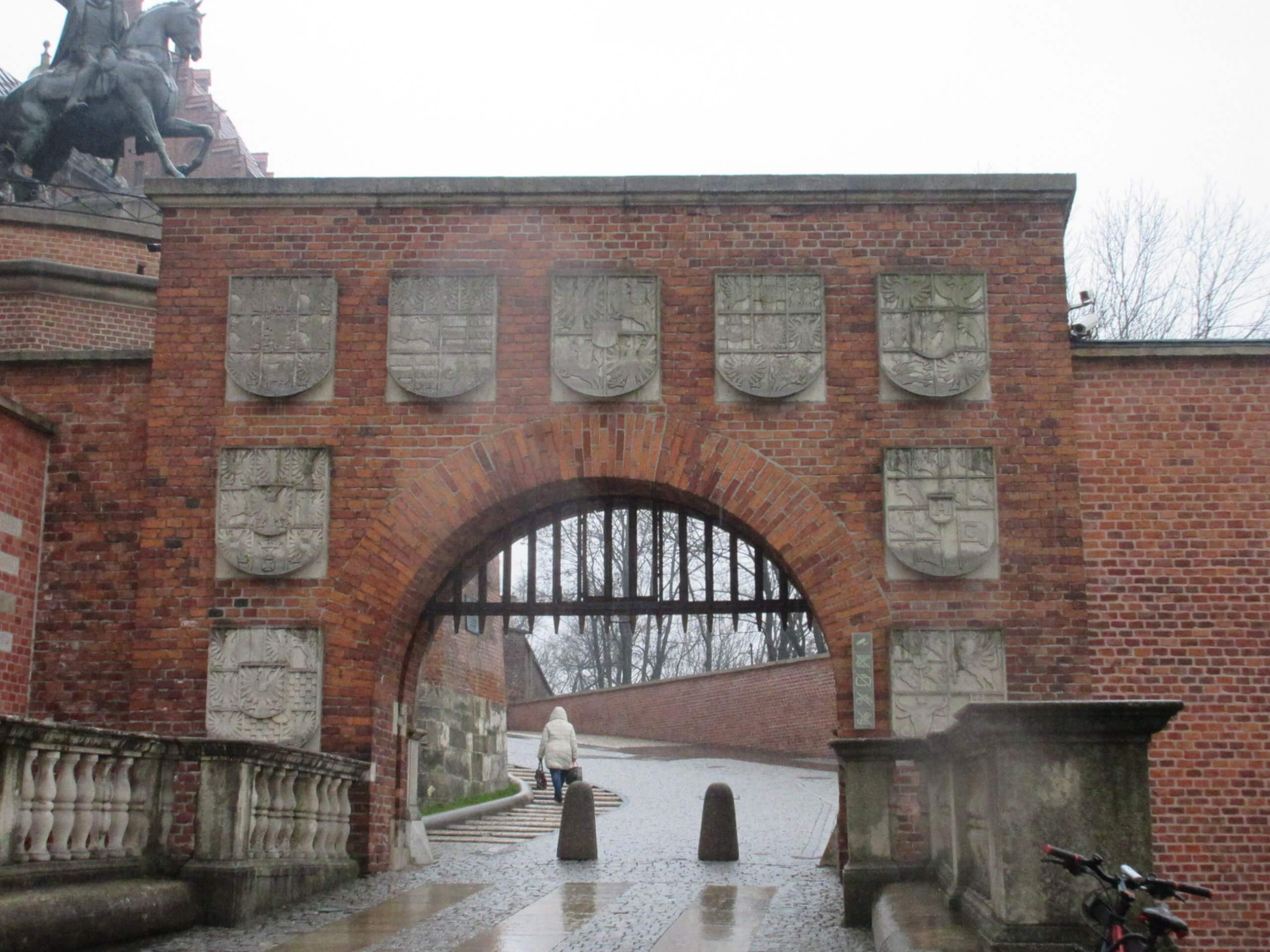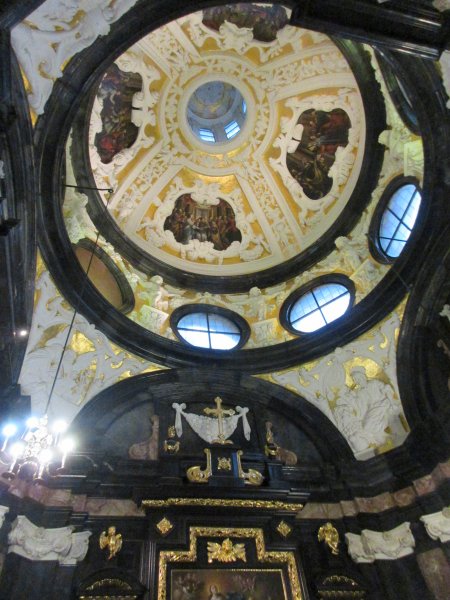Dr Kwasniewski discusses attending the Traditional Latin Mass in a country where he doesn't speak the language, pointing out the advantages of using one language at Mass.
From One Peter Five
By Peter Kwasniewski, PhD
In the forthcoming English translation of a new book-length interview with Bishop Athanasius Schneider, The Springtime that Never Came (due out from Sophia Institute Press in Spring or, latest, Summer 2022), Polish journalist Pawel Lisicki muses in the introduction about his experience of assisting at the bishop’s morning Mass in Kazakhstan:
It was a strange feeling to be in this corner of the world forsaken by God and man—where years earlier the Communists created a gigantic network of gulags—with mere tens of thousands of Catholics (out of eighteen million Kazakhs who are either religiously indifferent or profess Islam), and to discuss the most important challenges for the Church, the sources of the crisis, the wounds she has suffered, and ways to overcome the disease. It was a strange feeling, here, in this place where Stalin decided to strip people of their identities, memories, and attachments—to listen to Latin prayers, silent, persistent, Roman, and immutable.
The sound of these prayers has an extraordinary power. It’s as if they became a shield. These prayers have been passed down by generations of Catholics from time immemorial. They originated in Rome when it was still ruled by pagan emperors; they were brought to Germany by St. Boniface, and to Poland by St. Adalbert. Essentially they are immutable. Te igitur, clementissime Pater—the beginning of the Canon; even in a small chapel only a murmur reaches me. Silence as a sign of reverence, prayer as contemplation. Prayer as continuity and unity with past generations; communion across the ages for the whole earth. The ritual, sanctified by its very repeatability, purified of the subjective, opens the gate to eternal beauty for all sinners.
I had a very similar experience just a couple of weeks ago in Poland, the land of my ancestors. First, a note about them. One of my great-grandfathers, Piotr Kwasniewski, was born in 1869 in Pyzdry, Poland, in Wielkopolska; his father was born in Wrzesnia, Lodzkie. Piotr died in 1942 in Chicago. Piotr married Marianna Baczynski on February 14, 1898, in Chicago, Illinois, when he was 28 years old. His son Arnold Peter (1906–1936) was my paternal grandfather. He married Monica Eva Jankowiak on January 25, 1930, in his hometown. (Her father, Stanislaus Jankowiak, was born in 1875 in Lakie Stare, also in Wielkopolskie.) Arnold and Monica had two children—my father and my uncle—but then Arnold died of double pneumonia at the age of 29 on May 9, 1936, in Chicago; my father was six. From that time onward, my grandmother Monica never spoke Polish at home anymore, so while my father could speak some of the language, he did not use it regularly, and I hardly heard it growing up. That explains why, in spite of bearing a surname as Polish as pierogi and kielbasa, I hardly know a word of the ancestral tongue.
I had been invited to Warsaw by the Polish government to give a lecture on classical liberal education in the United States. They knew I would be speaking in English and so had provided a translation option for the 150 participants (the same pair of translators then did the same job in reverse for me!). After the conference, the speakers and organizers were taken to a gala dinner at one of the Ministry of Education’s buildings downtown. There were constant toasts and speeches during the dinner, and since I couldn’t understand a single word—really, it was like a total verbal brick wall—it was a bit hard to know what to do with myself, except sit there and look politely interested.
Fortunately, the hosts had seated me in between a great Polish traditionalist on my left and a fine gentleman on my right, both decently accomplished in English, so they would sum up the proceedings to me from time to time. With the traditionalist, I had the delightful experience of being able to use an occasional Latin word or phrase to fill in the gaps. For instance, he didn’t know the word for blood, so he just said “sanguis.” In fact, the only time the giant blocks of Polish speech-making suddenly opened up for a moment, like clouds parting to let the sun pierce through, was whenever a speechmaker would use a Latin or French expression.
Similarly, earlier in the day, I exchanged a thought with a Polish academic using a bit of scholastic Latin jargon, and that filled me with the greatest joy. I thought to myself: What a grand accomplishment for humanity it would be if we could land on a single language that belongs to no people or no country but could belong equally to everyone, and bring them together into a single linguistic world. Someone should try that sometime! Oh, wait…

Two days later—now in Cracow, on the morning after the launch of the Polish edition of Reclaiming Our Roman Catholic Birthright, a happy event that nevertheless could be chalked up, yet again, to the fallout from the Tower of Babel—I found myself walking early in the morning in a cheerful group of three Poles and a Czech to Wawel Castle, one of the most beautiful and historic places in Poland, to reach the side chapel in Wawel Cathedral where Low Mass would be offered by a priest of the Priestly Fraternity of St. Peter.
We arrived just as Mass was starting, in the presence of about twenty-five faithful (it couldn’t have held many more), of all ages. I admired the Poles for their ability to kneel on hard marble with no other support for the entire Mass, as if they were soldiers on vigil, and I felt my own laziness, although it was probably also my incredible tiredness from many nights of inadequate sleep.

The comforting words of the Latin fell like a refreshing rain on my ears, or—I said this already, but the metaphor is even more applicable now—like a ray of light piercing the impenetrable fog of the foreign language of the country outside. We were in God’s country now. The faithful made the responses together, in perfect cadence, in a totally natural way that came from their souls (no one had a missal). The priest said the Mass deliberately and with an easily audible voice, so that I missed not a single word. It was St. Sylvester Gozzolini’s feast day (the collect about the tomb is unforgettable).
Sadly, due to the clumsy provisions of Traditionis Custodes, the Lesson and Gospel were given only in Polish, which suddenly plunged me into the fog of unintelligibility again, and reminded me of how the vernacular not only includes the locals but excludes the stranger. It was the only part of the Mass that lost its world-embracing catholicity in favor of a narrow localization. At the conclusion of the Gospel the server said: “Laus tibi Christe,” and all was well again.
In a curious exhibition of terrible pastoral planning, a Novus Ordo Mass was simultaneously being celebrated elsewhere in the cathedral at the same time. You could hear the drone of verbiage amplified by distant speakers. The drone went on and on, almost without a pause, in the midst of the great silence of much of the Latin Mass in our chapel. It was like the experience recounted in Resurgent in the Midst of Crisis when I once attended a Low Mass in an upstairs Gothic chapel while a charismatic service was taking place in a lower chapel—the same sense of two worlds that have very little to do with one another, not only in accidental ways but far deeper down. The nearly unending drone of texts was like the noise of the secular world, like automobile traffic, while the awesome concentration in the side chapel was like escaping into a cave with Elijah, or with St. Benedict, to listen for the “still, small voice” (1 Kgs. 19:12), or, as the Douay Rheims puts it, “a whistling of a gentle air.”
The Novus Ordo Mass had started after our Mass but finished before it, and the scuffling of feet could be heard exiting the church. It seemed to me like a fast-food option, In-n-Out. The bells of the Eucharistic Prayer had come so quickly—the imported epiclesis, the consecrations—that the priest must have used the pseudo-Hippolytan pseudo-canon. In the back of my consciousness, then, was the stale, flat banality, the desolate fakeness of Paul VI’s toy, and in the forefront was the priest clad in Roman vestments standing at the altar of sacrifice as countless priests for centuries before him had done, whispering to God the intimate, poetic, exalted words of the one and only Roman Mass. It was more than a study in contrasts; it was a visceral experience of the clash of cultures within the Catholic Church.
That evening, at the second book launch (this time for the Polish edition of Noble Beauty, Transcendent Holiness), I said during the Q&A that that Mass in the Wawel side chapel was a perfect experience of the liturgy as synchronic and diachronic: synchronic, because I felt instantly and immediately at home in the very same liturgy said all across the world, wherever tradition is treasured—an experience I’ve now had dozens of times on my travels; diachronic, because it was substantially the same liturgy that had always been said on most of the altars of Christendom in the West for centuries. Alcuin of Charlemagne’s court, St. Anselm of Canterbury, St. Thomas Aquinas, St. Edmund Campion, St. Charles Borromeo, St. John Vianney, St. Vincent de Paul, St. Padre Pio—all would have been at home.
With the traditional Latin Mass, across the ages and around the world, one is “immer zu Hause,” always at home. Neither of these properties attaches to the Novus Ordo; it is not even stable enough to be the same as itself in one parish or diocese. Unity-in-diversity cannot be achieved by the plastic pluralism and amorphous adaptability of Paul VI’s modern rite. The miracle that, for some sacred moments at least, undoes the chaos of Babel demands the strong stability and inner coherence of the great Roman liturgy whose language gives to Latin-rite Catholics their very name.

Photos provided by the author.
No comments:
Post a Comment
Comments are subject to deletion if they are not germane. I have no problem with a bit of colourful language, but blasphemy or depraved profanity will not be allowed. Attacks on the Catholic Faith will not be tolerated. Comments will be deleted that are republican (Yanks! Note the lower case 'r'!), attacks on the legitimacy of Pope Leo XIV as the Vicar of Christ, the legitimacy of the House of Windsor or of the claims of the Elder Line of the House of France, or attacks on the legitimacy of any of the currently ruling Houses of Europe.